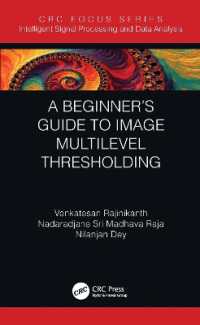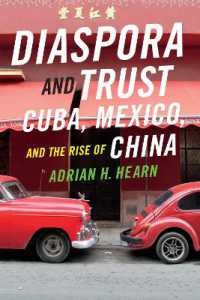- ホーム
- > 洋書
- > 英文書
- > Politics / International Relations
Full Description
Based on unique empirical research into Colombia's Santos-FARC-EP peace process (2012-2016), this book interrogates how, if at all, survivors and victims may assert agency and contribute to formal peacemaking and transitional justice initiatives.
The book argues that victim inclusion meaningfully transformed victim-perpetrator relations and dynamics in Havana, while partially shaping the content of both the Victims' Agreement and Final Agreement. As such, the delegations created paths for empowerment at the individual and, in part, collective levels. However, victim inclusion also precipitated experiences of victim depoliticization, revictimization, retraumatization and instrumentalization.
Drawing on insights from across academic disciplines, the book proposes an instrumentalization / empowerment spectrum to analyse the complex impact of victim-centred approaches to peacemaking/transitional justice, and is valuable for both researchers and practitioners.
Contents
Introduction
1. A Concise History of Violence
2. Colombia's Aberrational Cold War
3. Getting to Havana: From International Pariah to Innovative Peacemaking
4. The Havana Talks: A Victim-Centred Peace?
5. A Participatory Process? Victim Inclusion and Representation in Havana
6. Victims As Peacebuilders: The Relational Impact of the Victims' Delegations
7. The Impact of the Victims' Delegations: Victims As Peacemakers
Conclusions
Annex 1: Interview Format
Annex 2: Participation in the Victims' Delegations








